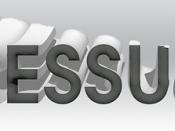Along the lines of optimizing performance, I looked at whether or not teams have an advantage when playing at home.
According to scientific research, home territory provides a significant advantage to individuals who are contending with rivals.
In the animal kingdom, animals tend to be more dominant in their own territories and submissive in the territories of others. Therefore, the favor goes to those animals who fight in their own territories.
With humans, people are usually more dominant and experience less stress in their own territories Ex. Debators and negotiators feel more comfortable and do better in their own territories.
This can also be extended further into the sports world. In sports such as baseball, football, basketball and hockey, it is a fact that home teams win consistently more games. Usually 55 to 65 percent of the time.
Factors that can lead to a home court advantage: a. regime regularity: players capitalize on regular home life and preparation schedules.
Their sleep cycles are more regular Have friends, family, and facilities that are available for support Psychologists feel that these factors permit players to be better prepared for the game, giving them the edge in physical, mental, nutritional, and mechanical conditioning b. other factors: crowd support: more appreciative, supportive fans encourage home teams / distract visitors visitors must perform without positive reinforcement and deal w/ hostility enhance home team's functioning, facilitating aggressiveness and dedication to win.
c. field familiarity: players are more familiar with their home playing field or court ex. A baseball player knowing how the ball will bounce when it hits the grass.
d. player-park matching players tend to play for teams that will most benefit them ex. New York Yankees usually try to get left handed power hitters(short right field) e. officiating bias"ÃÂsubconsciously react to home crowd and home teams tend to get more of the close calls How much these factors contribute to a home field advantage is up for debate by psychologists.
Yet, in the sports world these are higher valued advantages Two psychologists decided what if, in light of conclusive evidence, the opposite was true.
What if the home field can be a disadvantage for teams who are on the verge of a major victory or that players on the brink of a championship will play unusually badly or "choke"ÃÂ under the pressures generated by a supportive home crowd.
Therefore, they proposed the hypothesis that in a decisive contest, the home team and fans focus on winning the championship if success is within their grasp. The impending redefinition of self, as champions, particularly in front of the home crowd, engenders self-attention, which causes performance decrements.
When asked why they wanted to perform this experiment, Said that they had questions about the dynamics of choking And they felt that when people choke, they perform more poorly than they otherwise would because of pressures arising from the importance of the performance Choking evokes images of self-consciousness, nervousness, anxiety, distraction, and pushing to perform beyond one's limits.
Their argument is that choking is more benevolent and results in a person driven by success, not failure.
This gives us two types of choking: Kinder form: poorer-than-usual task performance that is produced by the anticipation of success in front of supportive audiences.
Darker form: typified by self-doubts and self-consciousness in the sense of unwanted and aversive self-attention.
They also argued that the home crowd enhances performance pressure, which generates performance-impairing self-attention when the team is on the verge of victory. This can cause teams to perform better when they are on the verge of defeat rather than victory.
For this study, archival data from the world series from 1924-1982 and NBA championships from 1967-1982.
The results from this test Home teams were shown to have a higher win percentage in championship games than in regular season games.
There is no convincing evidence that a team will choke at home in a championship game.
In actuality, there is more evidence that a home team has an advantage in all phases of a championship series. More evidence that supports the fact that a home team will triumph under pressure rather than choke as argued by the hypothesis.
When choking does occur, more associated with the anticipation of an important failure and not the distractions of possible success.
Those who feared being eliminated were usually the ones who had the greatest advantage. Those who knew they had to win played better than those who did not feel any pressure.
Implications of this Perhaps most people, not just athletes, are capable of rising to the challenge when they are in competition and one group knows it must win now, whereas the other group knows if it does not win the game, it is still in the battle.
Ex. A team that is up 3 games to 2 in a championship series has less pressure and therefore may not play as well.





